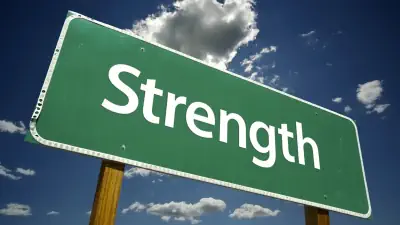Published March 23, 2020 By Addiction Helpline America
There’s been a lot of hype surrounding a popular substance called Kratom over the past couple of years. And if you happen to be trying to kick an opioid habit, you may have also heard that Kratom will help you through withdrawals as well. Readily available over the internet, many individuals claim to have experienced Kratom’s benefits, however, there are no FDA-approved uses for it. If you’re planning to give Kratom a try for opioid withdrawal symptoms or anything else, you may want to think twice. Just do your homework first.
Kratom is a tropical tree that grows naturally in various parts of Southeast Asia. While researchers date its use back to 1836 in parts of the far east, it's only become popular more recently in other parts of the world. The scientific name for the Kratom plant is Mitragyna Speciosa, and it’s leaves contain psychoactive components that have psychotropic effects.
The two primary psychoactive compounds in the leaves are mitragynine 7-a-hydroxymitragynine which interact with opioid receptors in the brain. This produces feelings of sedation, pleasure, and decreased pain, much like heroin and other opiates. Kratom also interacts with receptors in the brain to produce stimulant-like effects. While its side-effects can be mild, they can quickly become dangerous when the substance is consumed in large amounts.
Worth noting is that the Center for Disease Control (CDC) reported 91 Kratom overdose-related deaths in 2019. Bear in mind that all but seven of these casualties had other drugs in their system, however, these stats shouldn’t be ignored. Kratom had also only recently cropped up onto the scene at the time of the report, so we may see more Kratom-related deaths down the track. Time will tell, and remember that cases like these can easily go unreported as well.
Kratom is currently considered a controlled substance in six states. Kratom is illegal to sell, possess, use, or grow in the following states:
In some states, Kratom's legality varies within different cities and counties. Some states have imposed a legal age limit. Those include:
It is legal to consume, grow, and possess, and sell Kratom in the following states:
Kratom is known to cause dependence and withdrawals in many of its users, particularly those who’ve used it for an extended period of time. While there are no concrete reports backed by science or the medical community that it’s addictive, the dependency and withdrawals closely mimic those of opioids. There’s a strong likelihood that Kratom is highly addictive, but because it’s so grossly under-researched, it often slips through the cracks.
Kratom is frighteningly easy to obtain online as well, and its legality is questionable so it’s often used and abused. In small amounts, users report increased energy, sociability and alertness, but in large doses, it can lead to things like psychosis. Some people view Kratom as dangerous and addictive without any medical benefits and severe side effects including overdose and, in extreme cases, death. Others consider it to be an accessible means of treating chronic pain and opiate withdrawal.
If you’re an addict who’s looking into Kratom for opiate withdrawal, it’s important to consider the fact that this substance already acts a lot like heroin and other opiates. So you could simply be swapping one addiction for another while facing subsequent withdrawals down the track. Also worth noting is that Kratom is highly unregulated and there’s minimal quality control that goes into its sale and its production. This makes it very challenging to determine whether the Kratom you’ve purchased is safe. Some users end up requiring treatment for Kratom withdrawal when they really had no idea what they were getting themselves into in the first place.
Kratom currently sits on the United States Drug Enforcement Administration’s (DEA’s) Drugs and Chemicals of Concern list, but it’s not yet labeled a controlled substance. This list includes substances that, while not controlled by the Controlled Substances Act, can still pose risks to people when abused. In fact, the DEA is currently threatening to make Kratom a level one controlled substance, thus placing it in the same category as heroin or ecstasy. Furthermore, it doesn’t show up on drug screens since it’s not technically a controlled substance. Considering its opioid-like properties, this is arguably not good for the current opioid epidemic.
In short, there’s not enough research out there on Kratom to be able to claim with full conviction that it’s dangerous and addictive, but the FDA has received concerning reports about its safety. People need to be educated on the potential dangers of the substance so that they’re less vulnerable to false or misleading claims about its benefits. And when it comes to tapering off opioids, synthetic or otherwise, a good old-fashioned detox is always going to be the safest. Of course, it’s not advised for any addict to kick opiates cold turkey, but there are many reputable detox centers and rehabs across the country that can support you through the process.
If you or someone you love is struggling with addiction, Addiction Helpline America has all of the resources you need to find a quality rehab or detox center in your area. Also, make sure to check out the latest recovery news. Remember, you and those you care about never have to do this alone.
Our Private & Confidential Helpline Is Available 24/7.
Benefits Include:
- Licensed Treatment Centers
- Caring, Supportive Guidance
- Financial Assistance Options
Browse our directory of addiction treatment centers to find a provider or program that is right for you.
Get StartedHelp more people by listing your rehab in our directory. Getting listed is fast and simplete. Click the button below to get started.
Submit Your Center
Why Seeking Help for Addiction is a Sign of Strength
This article challenges the stigma of addiction, showing that seeking help is a courageous step and a true demonstration of strength.
Read Now
What to Expect When You Call for Help
Learn what to expect when you call Addiction Helpline America for help with addiction, including the process and benefits of seeking timely assistance.
Read Now
Unveiling the Connection: Mental Illness and Addiction
Explore the intricate relationship between mental illness and addiction, understanding the dual approach needed for effective treatment and recovery.
Read NowWho Answers?